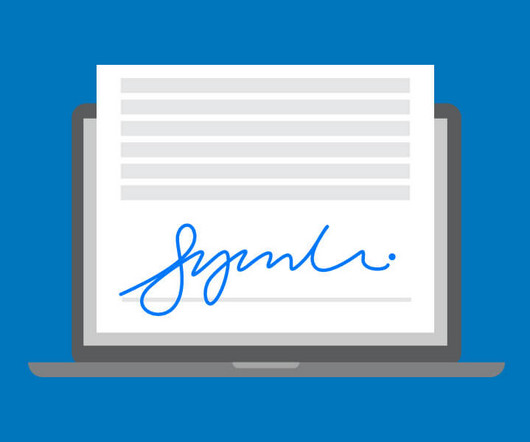Are Electronic Signatures Legally Binding? What Lawyers Should Know
Rocket Matter
AUGUST 22, 2024
Learn how big tech has changed the legal industry Free Guide The Small Firm’s Guide to Big Tech While any change in how you operate your law office can feel overwhelming, there’s never been a better time to start migrating your office structures online. Two primary laws govern the use of eSignatures in the U.S.:














Let's personalize your content